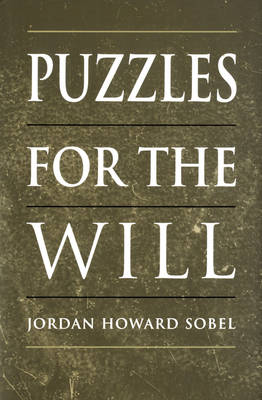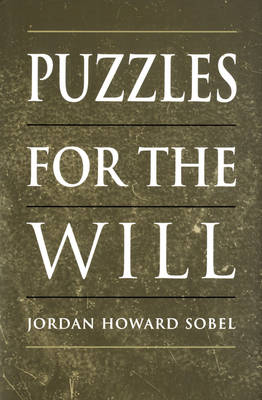
- Retrait gratuit dans votre magasin Club
- 7.000.000 titres dans notre catalogue
- Payer en toute sécurité
- Toujours un magasin près de chez vous
- Retrait gratuit dans votre magasin Club
- 7.000.0000 titres dans notre catalogue
- Payer en toute sécurité
- Toujours un magasin près de chez vous
Description
Issues of free will and determinism, with their far-reaching practical implications, hold a central place in the history of philosophy. In this book Jordan Howard Sobel looks at the many and varied approaches to this complex topic.
The arguments analysed fall into two main groups: those from within the literature of fatalism or logical determinism, claiming that free will is impossible, and those from the field of causal determinism, granting that free will is logically possible but showing that we lack free will owing to certain contingent facts about the world. Sobel considers some problems for decision-making that arise if we grant the possibility that someone may be able to predict reliably what another agent will freely choose. Sobel's careful analysis lays a solid foundation for the study of free will and will interest all who are concerned with fated, determined, and predicted choices and how philosophical reflection about these can puzzle the will.
Spécifications
Parties prenantes
- Auteur(s) :
- Editeur:
Contenu
- Nombre de pages :
- 256
- Langue:
- Anglais
- Collection :
Caractéristiques
- EAN:
- 9780802043269
- Date de parution :
- 26-09-98
- Format:
- Livre relié
- Format numérique:
- Genaaid
- Dimensions :
- 158 mm x 240 mm
- Poids :
- 494 g







